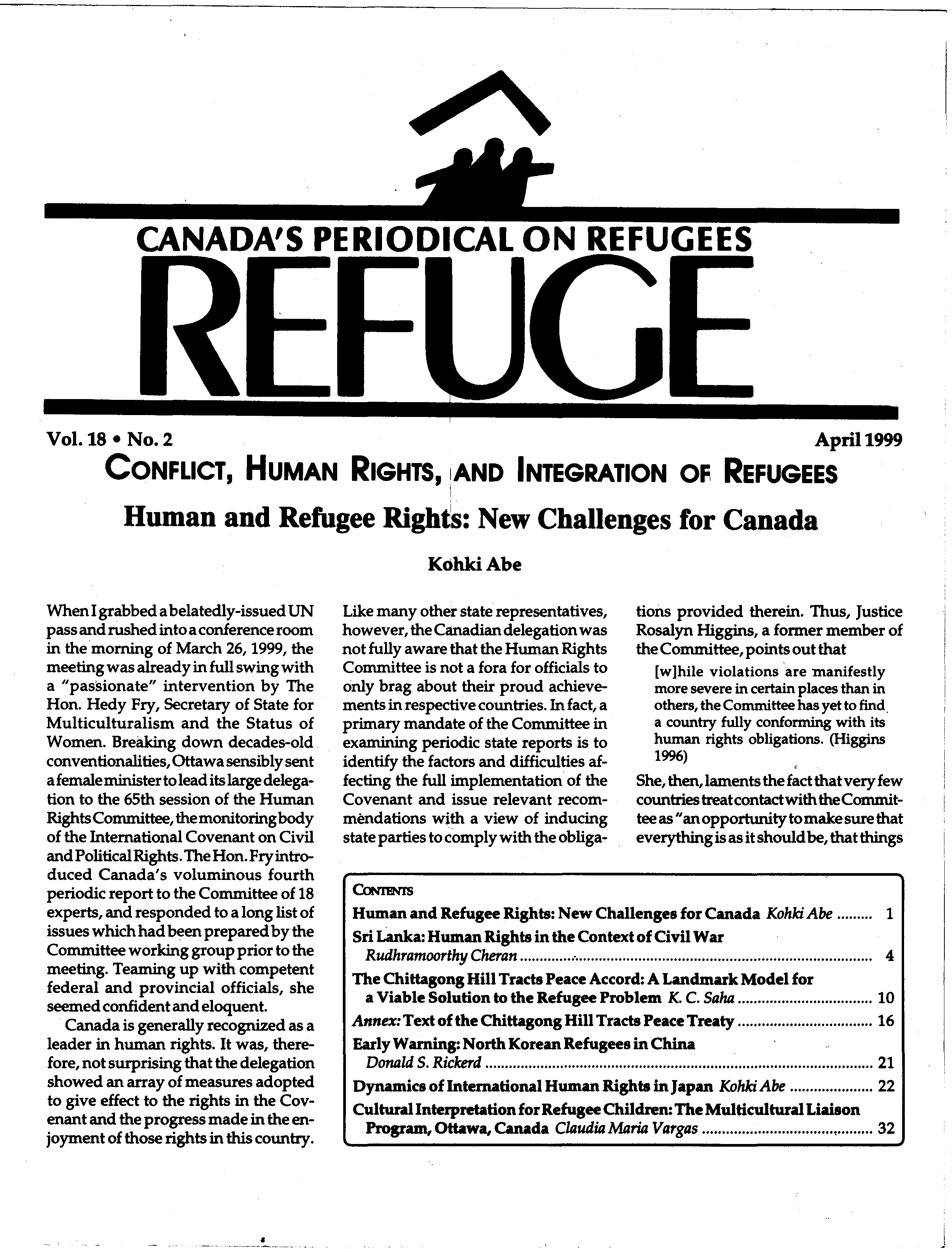Dynamics of International Human Rights in Japan
DOI:
https://doi.org/10.25071/1920-7336.22011Keywords:
Japan, Canada, human rights, law, policy, judiciary, refugees, NGOsAbstract
Starting with a preliminary evaluation of Canadian human rights practices, the author critically traces the development of international human rights in Japan. While the country has been affected favourably by the newly-emerging international human rights regime, judicial reluctance to acknowledge the relevance of human dignity leads the author to conclude that there is still a long way to go in achieving the desired situation. The article ends with a call for the acceptance of treaty-based individual petition procedures, which in his view may effectively induce the judiciary to open up to the universal norms for the protection of human rights.
Metrics
Downloads
Published
How to Cite
Issue
Section
License
Copyright (c) 1999 Kohki Abe

This work is licensed under a Creative Commons Attribution-NonCommercial 4.0 International License.
Refuge authors retain the copyright over their work, and license it to the general public under the Creative Commons Attribution-Non Commercial License International (CC BY-NC 4.0). This license allows for non-commercial use, reproduction and adaption of the material in any medium or format, with proper attribution. For general information on Creative Commons licences, visit the Creative Commons site. For the CC BY-NC 4.0 license, review the human readable summary.







